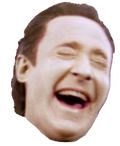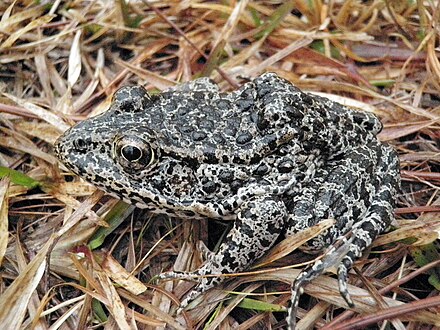


b u g l o r e




Apologies in advance for severe treatbrain
Steven Erickson’'s Malazan series had a big bad introduced in the third book named the Crippled God who was the personification of this, a mind subjected to terrible pain with no rehabilitation in the aftermath of its trauma. This god quickly establishes himself as the biggest player in the game, with torturous power that contorts people’s bodies, and so pain is presented as something fundamental, something antithetical to meaning that is more powerful to living creatures than the spheres of any other God.
To counteract the treatbrain I’ll also bring up the fact that solitary animals do not tend to cry out in pain like social animals do. They do experience pain, even though some people will try to classify it as something lesser with words like “nocicpetion,” but the important distinction is that they aren’t usually sent into fits of screaming and paralysis like social animals. This tells me that, for social animals, pain is something that MUST be answered, even to the point of wanting revenge when the pain is gone. The CEO (I spit on him let’s be clear) would be alive today if Luigi’s pain had been addressed properly. But if this CEO had pushed such a policy, my guess is that he wouldn’t have been made CEO in the first place.
When I found out that leech saliva was antimicrobial I decided leeches are good and that disliking them is lookism


 (I am stealing that rfk line)
(I am stealing that rfk line)


I have very few resources to offer anyone in need, as it’s really only by my basic unfair privileges as a cis white man that I even have a place to sleep, but I’m just trying to make it clear to the people I know that I have the space to house them/feed them if they are in crisis. Without much else to support them with it feels like the best I can do.


Food comes in, poop comes out. Never a miscommunication. You can’t explain that. You can’t explain why the poop comes out.


The people I regularly play games with will agree with these complaints and then absolutely go right back to them as SOON as they are in a match. I think the stress and anxiety of feeling like they’ll underperform or worse, look dumb, in a potentially 40 minute game gets to them.
I don’t mean to gloat but as soon as I just accepted that my ego should not be attached to my or my team’s performance in a funny game where I click to move a lil critter around I started getting way better at them, and at higher ranks people are legitimately less toxic, at least per game.


I loved reading about how in ant species that have a bunch of different morphologically distinct castes, the “majors,” which are essentially big soldier-sized workers, usually wind up just being there to let smaller workers ride them around.


Really feels like I picked a bad time to be interested in amphibians sometimes 
Definitely jealous of getting to work with condors, sounds awesome.


Love to imagine modern,alienated leafcutter ants rejecting fungus cultivation
(Ant-archo primitivism)


I visited a lab where some of the last remaining dusky gopher frogs are cared for.

(reminder that frogs may be in what is considered the sixth mass extinction ever on earth)


The “hive mind” trope sucks ass, seriously, it misses so badly. It’s always some kind of “one mind, many bodies” thing even though that’s just a body, like the one your cells and neurons make up. The hive mind is, if anything, only possible when there are many individuals whose ability to independently gather and digest information in the group. It’s emergent from the shared dependencies of social animals. The most direct example is often ants because they can’t even survive without others to regulate their bodily processes, like they can’t poop right and die if there aren’t any other ants to barf food into in order to empty their second stomach. Their “hive mind” is something they make as a collection of individuals, just like with humans tbh (but that’s just philosophy in the end aince it’s hard to empirically test)


Worth pointing out that the domesticated fungus in leafcutter ant nests is not found anywhere else in the world, it’s genetically distinct. When they start a new nest, they even carry a sample of the fungus for the new gardens as if they are maintaining the FLAME OF CIVILIZATION


Some ants even pretend to be injured to get carried back by their nestmates, they just like me fr fr


You have the right idea but I gotta share my ant brainrot for a moment
Queens indeed do not rule nests and they are essentially the brood slave of a colony at worst, the colony’s sex-having consolidated into an individual at best. But Queens do make some big ass decisions when it comes to starting a colony, since they are the ones who, after mating (usually out in the open in a nuptial flight event), make the decision of where to dig the first tunnels of a new nest. They also care for the first generations very closely, even helping them out of their eggs and stuff, it rules.
Its probably worth mentioning though that this isn’t true across all ant species, since there’s a ton of variety. Some ants do no have morphologically distinct queens, as they are selected from among the workers in little ceremonies that scientists once though were dominance duels but now they think might be little cheerleading competitions to see who gets the crowd going best (awesome). Other ants don’t have queens at all and are parthenogenic, which has crazy consequences for the dispersal patterns of their offspring. And then you have the supercolonies with multiple queens which are worth their own effortpost


There are probably lots of historical records that were written by people operating on too many layers of irony to truly interpret accurately


There’s a lot of evidence to suggest that early humans and neanderthals coexisted and even cohabitated and it makes me happy to imagine it being not just circumstantial but enthusiastic cohabitation (not even horny)
Like the period of coexistence lasted for estimates of thousands of years. You’re gonna tell me there were no cross-species duos getting up to mischief? Not one puny human kid who teamed up with the big neanderthal kid because they were both getting bullied? No Last Kingdom scenarios in which a child who was raised by the other group feels torn between these identities? Please


My cargo shorts are the garb of an artist, disheveled and prophetic



The books set in Bas-Lag by China Meiville fit this and also happen to have based politics (and cactus people)
The Gormenghast books spend a lot of time satirizing fantasy royalty with a ghoulish atmosphere of “decaying hateful weirdos with well-rehearsed manners” over it, and passing attention to the real but impoverished life outside the castle
Malazan has some of what you are after but it deconstructs like every trope throughout its enormous wordcount so I imagine it’s too broad
(My book has it too but it’s more of a backdrop, likely too distant for what you want)


The entire album Symbol by Susumu Yokota might hit the right nerve, though it’s heavier on the dreamlike side and doesn’t have lyrics. I use it for driving, writing, anything that needs a kind of hypnotized but functional state of mind.